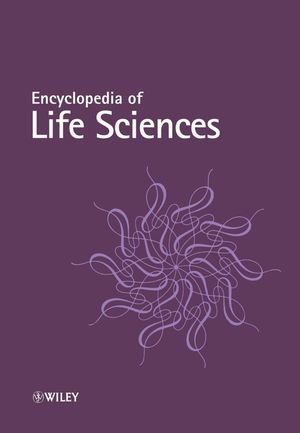Encyclopedia of Life Sciences, 26 Volume SetISBN: 978-0-470-06651-5
Hardcover
18348 pages
April 2007
 |
||||||
Spanning the entire spectrum of life sciences, the Encyclopedia of Life Sciences (ELS) features more than 4,000 specially commissioned and peer-reviewed articles, making it an essential read for life scientists and a valuable resource for teaching. Aimed at researchers, students and teachers, articles provide comprehensive and authoritative coverage, written by leaders in the field.
Colour illustrations and tables accompany articles, with appendix and glossary material providing essential information for the non-specialist, including biochemical and taxonomic information, acronyms, synonyms, units and other technical data. Importantly, all articles have been peer-reviewed to ensure a balanced representation of the literature.
Articles are divided into three different categories indicating their level of complexity: Introductory, Advanced and Keynote. Introductory articles have been written primarily for undergraduate and non-specialists requiring the basic concepts of a particular subject. Advanced articles provide a more detailed discussion of specialist subjects, equivalent to that found in graduate level texts. Keynote articles provide a platform for debate where controversial issues and 'hot topics' can be discussed.
Coverage includes:
- Biochemistry
- Cell Biology
- Developmental Biology
- Ecology
- Evolution and Diversity of Life
- Functional and Comparative Morphology
- Genetics and Disease
- Genetics and Molecular Biology
- Immunology
- Microbiology
- Neuroscience
- Plant Science
- Science and Society
- Structural Biology
- Virology



